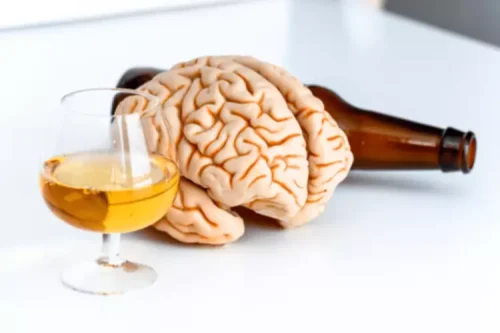
Maybe this was just one drink more than you planned or maybe it was many drinks that then lead to an embarrassing moment in front of your friends or work colleagues and then a terrible hangover the next morning. Whatever happened during this slip-up it is important not to write off alcohol moderation as not for you, if you have seen progress to date. In my professional opinion those upon the continuum without a physical dependence such as mild to moderate use disorder can, with the right tools, skills and support can learn to drink alcohol at safer levels. It is a fantastic opportunity to begin a moderation journey to increased health and wellbeing. One reason that might explain the link between moderate drinking and lower mortality risk seen in some studies, the authors said, is that light and moderate drinkers tend to be healthier than abstainers.
- In this article, we’ll explore how to drink alcohol responsibly, offering tips and information about moderation and the impact of alcohol on the body.
- When the pain and suffering that irresponsible drinking becomes great enough, you will become willing to do what it takes to make an honest self-appraisal and make behavioral changes.
- Drinking alcohol is a little bit like the relief we get at the end of the day from taking off a really tight and uncomfortable pair of shoes, only to put them on again.
- If my clients can achieve those numbers on a monthly basis, that’s excellent—but that’s often unrealistic for many, which is perfectly OK.
- However, these studies were very limited, and no confirmed conclusion has been reached on the link between menstruation and alcohol absorption.
- If you find that your use of alcohol leads to feelings of guilt, shame, or remorse, choose to be honest with yourself about the problem.
Moderate drinking increases health risks compared to not drinking
However, it is important to note that many studies making these claims are inconclusive. One standard drink in the U.S. contains how to drink moderately around 14 grams of pure alcohol. What I actually wanted was for someone to wave a magic wand and fundamentally change alcohol.
The benefits of moderate alcohol consumption
- While light/moderate drinkers lowered their risk for cardiovascular disease, the study also showed that any amount of alcohol increases the risk of cancer.
- One of the best things about moderating your alcohol use is filling newfound time with fun hobbies and activities.
- This information on drinking in moderation was adapted from materials from the National Institute on Alcohol Abuse and Alcoholism.
Studies have found that with the same amount of drink, blood alcohol concentrations are at their highest just before menstruation and at their lowest on the first day after menstruation. If you are interested in assessing your “chances of success,” according to ModerateDrinking.com, for drinking moderately, you can take a free online assessment. Choosing to commit to a drinking moderation program means that you will begin to become more mindfully aware of your drinking patterns and take full responsibility for your actions. In order for behavioral change to occur, you must commit to doing the work. When the pain and suffering that irresponsible drinking becomes great enough, you will become willing to do what it takes to make an honest self-appraisal and make behavioral changes. Drinking in moderation means that you can still enjoy a few drinks with friends and family without being worried that you will lose self-control.

Lifestyle
- False positives can show from eating poppy seeds or drinking kombucha tea.
- We strive to create content that is clear, concise, and easy to understand.
- Between October 18–21, this website will move to a new web address (from health.gov to odphp.health.gov).
- Use the present moment as an opportunity to begin to act differently.
- In one case, a father who feared a court ordered test, was picked up by the court’s stagmometers upon entering the courthouse, carrying a baggie of urine taped to his hip.
The paper also found a significant interaction between the age of study subjects and their mortality risk. While there wasn’t much of a difference in risk between younger and older groups who drank moderately, younger people in the study had greater mortality risks than the older ones at high consumption levels. Relapse occurs when the abuser faces triggers or risk factors without having developed adequate coping skills. Reasons for relapse include social or environmental factors that remind the abuser of drugs or alcohol. In one case, the mother purposefully stayed out of New York for a full semester in order to develop her coping skills for when she returned to the scene of her drug abuse.


Change can be hard, so it helps to have strong reminders of why the change is important to you and how you’ve decided to do it. Familiarize yourself with local drinking laws, including https://ecosoberhouse.com/ age limits and drink-driving regulations. Compliance with these laws not only protects you from possible legal consequences but also contributes to your safety and the safety of those around you.
